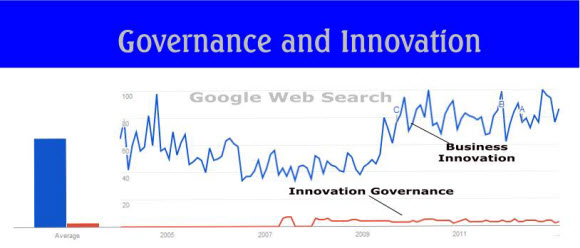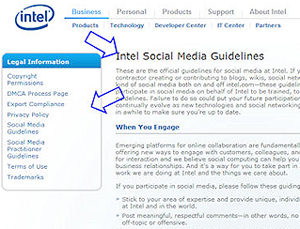
Innovation is one of the top issues for Boards and senior managers.
Three recent surveys indicate:
Survey | Finding |
| IBM’s 2010 Global Survey of CEOs (IBM, 2010) | CEOs cited creativity as the most important leadership quality over the next five years. |
| Ernst & Young, 2010, Connecting innovation to profit | They [top entrepreneurs] understand that innovation is the primary force that can catapult a company to market leadership and keep it ahead of its rivals. They know from experience that the passion for innovation that started them on their journey has to be protected and nurtured. |
| GE Global Innovation Barometer | 91% of senior executives surveyed report that innovation is a strategic priority for their company |
Senior managers from start-ups to big corporates realize that innovation is important but what about innovation governance?
It seems that innovation governance lags well behind the focus on business innovation. Authors of the article Corporate Governance and Innovation: Theory and Evidence write,
… our knowledge of how laws and institutions shape the innovation choices of firms at the micro-level through the channel of corporate governance is still relatively nascent.
I can attest to this since my search for the phrase innovation governance yielded far fewer results than for business innovation.

I used Google Trends and searched on the two phrases shown in the above chart. A few observations:
- Business innovation is a subject of continuing interest, though it declined up to the World Economic crisis in 2008-9;
- Innovation governance did not appear until 2007;
- There is a wide gap between the two phrases.
The conclusion is that Innovation Governance needs far more attention. Boards, C-Level managers and researchers need to evaluate the risks and the opportunities associated with innovation. More on this in future posts.






